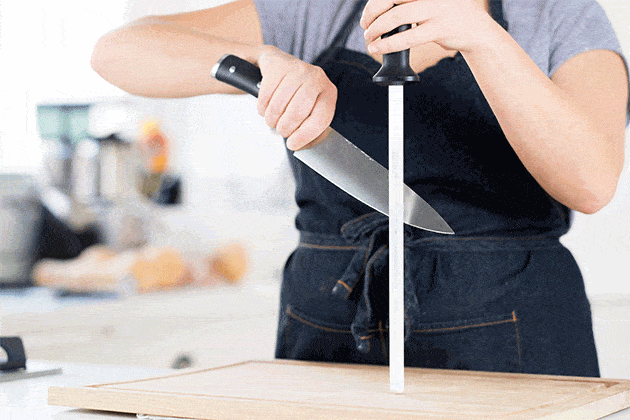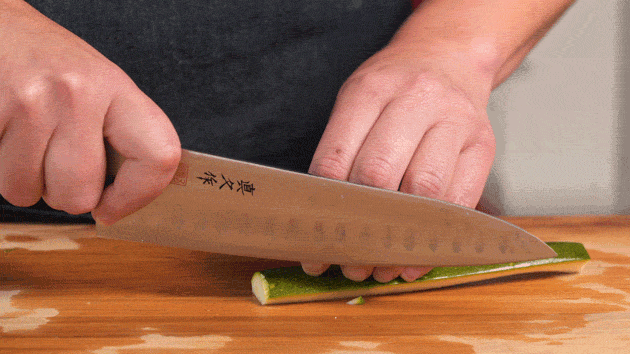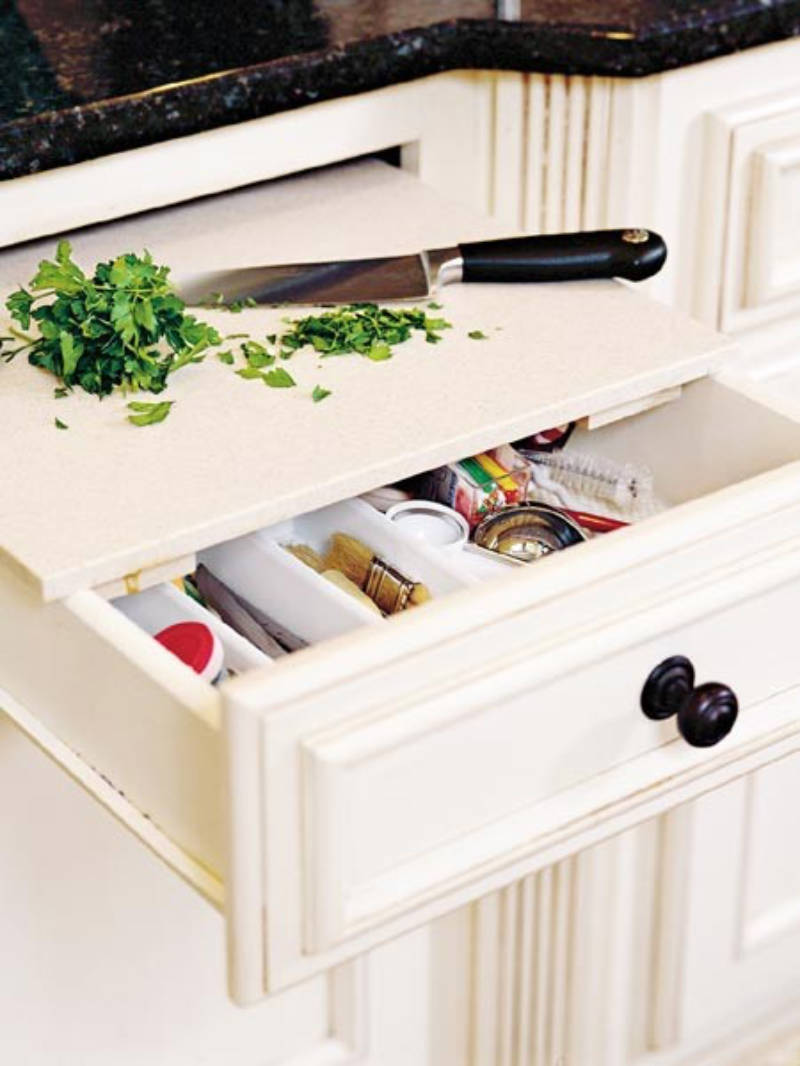Cooking is art. From basic to expert cooking, there’s always something to discover.
And like any art, there are many nuances to dishes and techniques. No one’s food tastes exactly the same, and theoretically, even the same dish won’t taste exactly the same.
Because of that, it’s good to hone a few basic cooking skills that will make your life in the kitchen a lot easier, and get you excited to learn more advanced techniques.
1. Keep everything ready and in sight

One of the first basic things they teach you in cooking school is to get everything you need and keep it within hand’s reach. Everything should be easily accessible, already in the exact quantity you need. This prevents you from having to hunt for stuff, causing distractions that could lead to burning food or forgetting ingredients.
TIP: Store spices in a dark and cool place, never near the stove or the oven. The heat changes the taste of herbs and spices.
2. Hone your knife all the time

First of all, get yourself a good set of knives. Using the correct knife for each situation is always a great help.
But above all, always keep your knives sharp. That is, hone them every time you use them. Even a slightly blunt knife will give you a much harder time than necessary — remember, when you’re cutting, the knife should be doing most of the work.
You can use the technique above. Hone the entire length of the knife, always moving away from your hand.

Check the gif above: Use your knuckles to guide the knife along the path, keeping your fingers slightly curved away. That way, you’ll never cut yourself!
3. A little salt goes a long way
The right way to salt your dish is every step of the way. If you salt it only in the beginning, the flavour might disappear; and if you salt only in the end, your food will only taste like salt.
So lose the salt-shaker, and sprinkle with your fingers — this gives you more control over the quantity. Salt from up high too, so it spreads more evenly (yes, just like that meme).
Experiment with seasoning: black ground pepper is also great for seasoning, because it’s very light on your taste buds and you can season it generously. But don’t forget sugar and acidic seasoning (like lemon or lime) — taste your food and let your taste dictate what it needs.
If you can, invest in kosher salt, or sea salt — it’s much better for seasoning than table salt.
4. Peel a hard-boiled egg with a spoon

Peeling a hard-boiled egg can be very hit-or-miss — sometimes it works fine, sometimes it doesn’t.
Using a spoon, however, you greatly improve your chances of success. Crack the shell and slowly insert the spoon beneath it, letting the curvature of the spoon fit the natural curvature of the egg. Turn it around gingerly, keeping the spoon inside, and when you come full circle, the entire shell should be coming off.
To better understand this, watch the video below:
5. Crack eggs on a flat surface

This one is pretty straight-forward: always crack eggs on flat surfaces. It works just the same as hitting it on corner of a bowl, but it prevents cracked egg shell from going inside the egg and falling on your food.
Always aim for the middle of the shell — it’s the weakest part. Hit it just right, and it will crack easily without making a mess.
6. Cook the last minute of pasta in the saucepan

To make sure your pasta absorbs the most flavour from the sauce, take it out one minute before the time stated on the pack, drain it, and cook that last minute in the saucepan (leaving a bit of water in). This way, the pasta picks up a lot more flavour, and doesn’t feel separate from the sauce.
Learn what is Al Dente: more than trusting the time stamp on the pack, you have to trust your teeth. To really know if the pasta is on point, take one string out using a fork, and eat it — it has to be firm, but never crunchy.
7. Add water to the pan for perfect bacon crisps

You don’t need to cover the bacon strips with water for this to work. Simply add enough water to cover the bottom of the water, and cook over medium-high heat.
This will prevent fat from flying all over the place, and will prevent the bacon from burning too quickly — so it’s very hard to mess up.
When the water has evaporated, cook the bacon just a bit longer until the crispness is to your liking.
You can also do this for bacon cubes, it works just as well!
8. Put your cutting board in an open drawer

Most people don’t have a huge kitchen — and it’s actually better to start small. You find creative ways to make room and save time, and it will help you a lot in the future.
A simple but brilliant tip I found for small kitchens is to rest your cutting board over an open drawer — depending on what you’re cooking, you may need extra space, and by doing this, you get a whole new area to work with.
9. No crying when chopping onions
This one is easy: place onions in the freezer for about 15 minutes before dicing. Leaving them for the same amount of time on ice-water has the same effect.
No more tears!
10. Use a spoon to prevent water from boiling over

This is a well-known trick, but I’m putting it out there for those who didn’t know… like me, until very recently.
For preventing water from boiling over, simply place a wooden spoon across the top of the pan. I cannot explain the science behind it, but it works.
Want to learn more advanced techniques? Let us know in the comments, and share what are your favorite cooking tips and tricks!
Ready to get your dream chef's kitchen? Call us today for a free estimate on remodelling your kitchen, and follow us on Facebook for more tips!
Keep on reading:
Make Dinner Unforgettable with These Easy Sauce Recipes
The Cooking Guide for Making All Recipes Gluten-Free
These 9 Soup Recipes Will Keep You Warm During the Winter
Easy 3-Ingredient Recipes For Busy Days